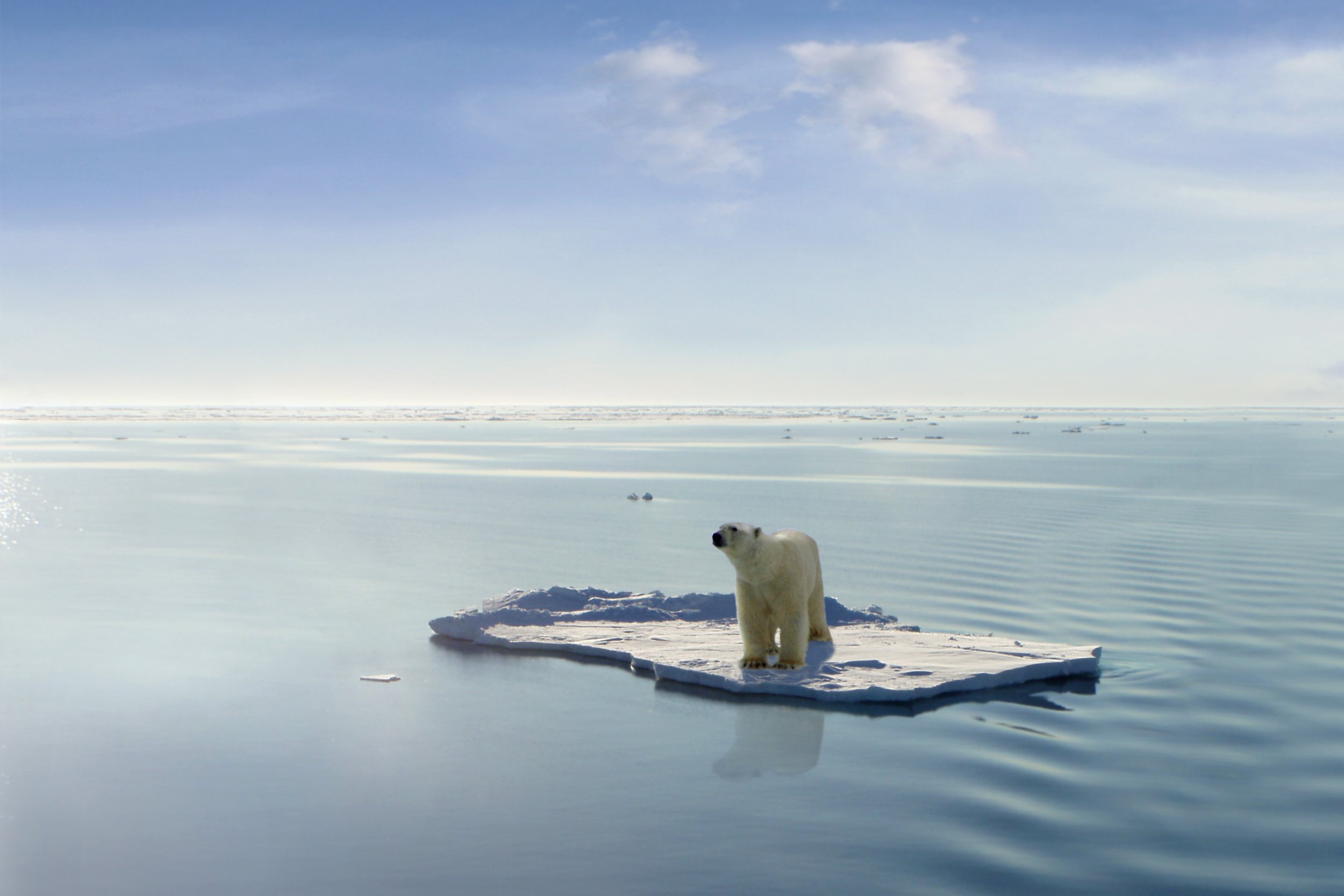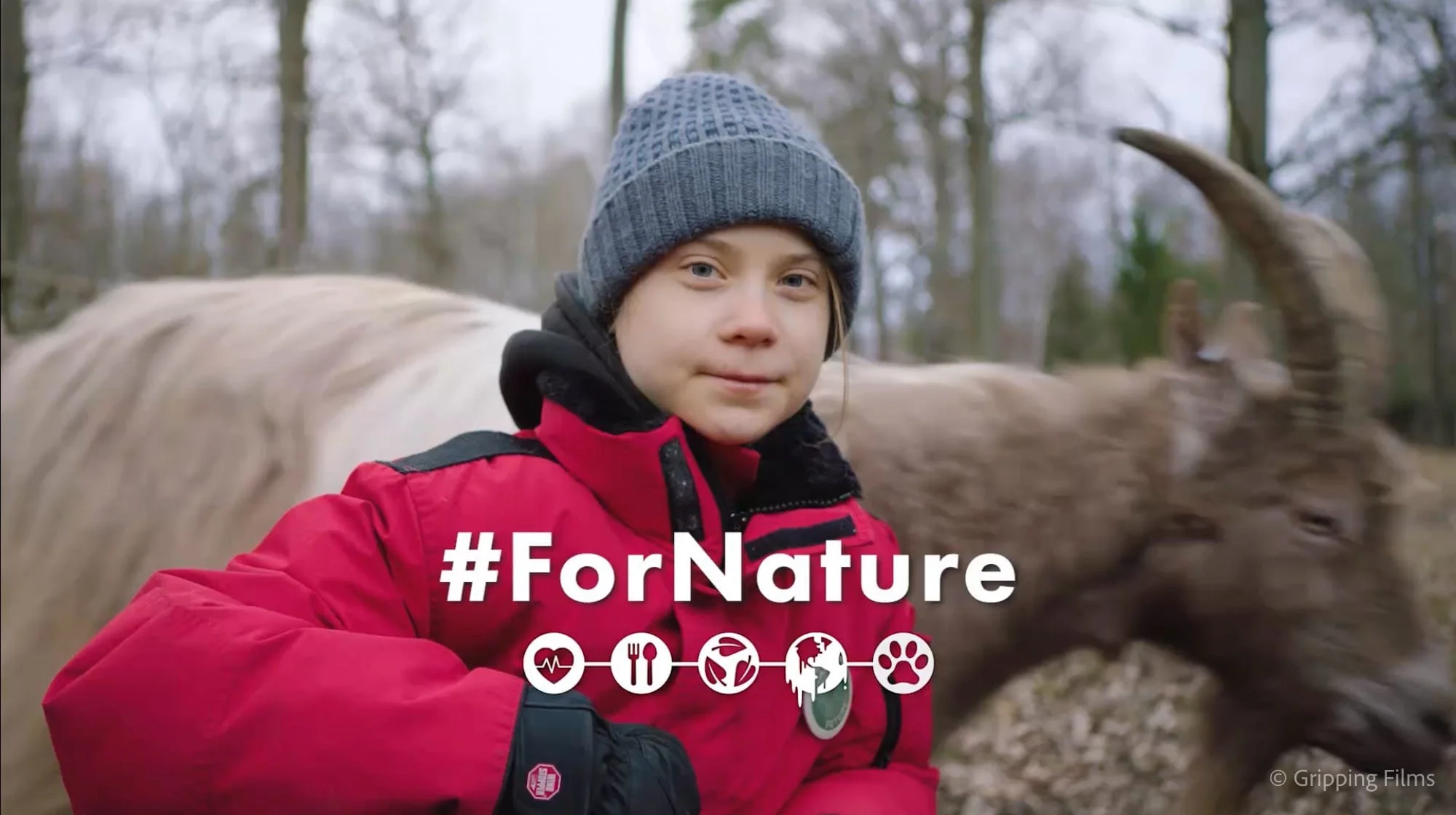
Meat and climate
What you should know about meat and the climate
Is meat bad for the climate and the environment?
In recent years, there has been an increasing focus on the impact of meat and meat production on the climate and the environment. But is meat bad for the climate? And is vegan food good for the climate? We have gathered a lot of information so that you can read more about meat and the climate for yourself.
The environmental costs of animal agriculture
The fishing, meat, dairy, and egg industries are not only an animal welfare problem—they are also a nightmare for the environment. The UN states that rapid and unprecedented changes—including a shift to a plant-based diet—are essential to limit the catastrophic damage that climate change will cause.
Overview of the harmful environmental impact of animal agriculture
-
According to the UN, animal agriculture is responsible for 14-18% of global greenhouse gas emissions—more than all forms of transportation combined.
Sheep and cows emit large amounts of methane—a greenhouse gas that is 30 times more potent than carbon dioxide at trapping heat in the atmosphere—contributing to climate change.
The production of fertilizer for crops used to feed the animals, gasoline to power the trucks that transport them to slaughter, and electricity to freeze their carcasses also requires enormous amounts of fossil fuels, resulting in the release of huge amounts of carbon dioxide into our atmosphere.
Researchers agree that plant-based foods have a smaller carbon footprint than animal products, so the easiest way to slow down climate change is to eat vegan.
-
Animal agriculture also has a shocking water footprint. Each meat eater is responsible for consuming an average of 15,000 liters of water per day. While it takes approximately 1,790 liters of water to grow 1 kg of wheat, we need more than five times that amount to grow 1 kg of beef. That's like 50 bathtubs full of water to make just one steak. And it takes 72% more water to raise cows for milk than it does to make soy milk.
-
Most of the pesticides, herbicides, and other chemicals used on feed crops return to the environment via wastewater and excrement, polluting soil and water worldwide, causing soil degradation, damaging human health and deep-sea life, creating ecological "dead zones" in the oceans and killing wildlife such as fish, bees, and amphibians.
The UN recognises that animal agriculture is one of the biggest contributors to water pollution. Runoff from meat, egg and dairy farms pollutes rivers with faeces, urine, pathogens such as E. coli, antibiotics and other drug residues.
Ammonia gas, which comes from Denmark's cattle, chicken, and pig farms, is a deadly air pollutant that poses a threat to human health and can cause premature death.
-
Animal agriculture has the world's largest footprint on the earth. It occupies one-third of the earth's land surface and is responsible for 30% of biodiversity loss. Agriculture is the most frequently reported threat to wild animals and plants, and WWF has identified habitat loss as the main cause of species extinction.
Wild animals are running out of space to live, and species are becoming extinct at an alarming rate. But despite this crisis, humans are still tearing down some of the most species-rich areas on Earth—including rainforests in South America—to graze cows or grow soybeans for animal feed. A whopping 90% of the world's soy crops go to cows, chickens, sheep, and pigs. By moving away from raising animals for food, we can stop deforestation, fight the climate crisis, and preserve the natural habitats of many animals.
Mistreating nature can have devastating consequences for human life. Regarding the COVID-19 pandemic, leading biologist Professor Thomas Lovejoy said, "This pandemic is the consequence of our persistent and excessive interference with nature and the extensive illegal trade in wild animals and plants." Other scientists have highlighted that deforestation, intensive agriculture, exploitation of wild animals, and uncontrolled expansion of agriculture create the "perfect storm" for disease outbreaks originating in other animals.
-
Fishing vessels are decimating the world's oceans, leaving them empty, lifeless, and on the brink of ecological collapse. With an estimated 90% of fish stocks fully exploited, at this rate there will not be many more fish left in the sea.
A recent report described discarded fishing gear as "the most harmful form of marine debris for animals." This equipment—also known as "ghost gear"—maims and kills millions of marine animals every year.
Fish farms are also unsustainable. Farmers who raise salmon feed them three times their weight in wild fish. Fish on farms live in crowded, dirty enclosures and suffer from infections from parasitic lice, diseases, and debilitating injuries. Conditions on some farms are so appalling that up to 40% of the fish die before farmers can euthanize them.
-
The world is facing a food shortage that hits the poorest people hardest. Yet every year, animals on factory farms are fed 760 million tons of grain so that people can eat meat, dairy products, and eggs. This is terribly inefficient: it can take up to 16 kg of grain to produce just 1 kg of meat. The world's farmed cows consume an amount of food equivalent to the calorie needs of 8.7 billion people – more than the entire population of the earth. If the grain were used directly to feed people instead of being fed to animals on farms, there would be more than enough food for everyone.
What you can do for animals and the planet
The best thing we can do for animals and the planet is to eat vegan. Refraining from eating meat, fish, eggs, and dairy products is also the simplest way for each individual to spare the lives of nearly 200 animals each year—and to reject the daily suffering that takes place in slaughterhouses and factory farms in Denmark and elsewhere. If you want help getting started, you can sign up for the Vegan Challenge for free and get tips and advice for every part of your journey.

More facts about meat and climate
Animal agriculture is responsible for 14-18% of greenhouse gas emissions—more than the total emissions from all forms of transportation.
If you eat vegan, you can reduce your carbon footprint from food by up to 73%.
One-third of the Earth's land area is used for animal agriculture, and if we all stopped eating meat and dairy products, global agricultural land use could be reduced by 75%.
Cows alone produce more than 560 billion liters of methane per day.
It takes over 15,000 liters of water to produce 1 kg of beef.
By eating vegan, we reduce our water footprint by almost 60%.

